- Wednesday, 29 October 2025
Memorial Of An Ace Administrator
While several books are published every month these days and very few of them attract commentaries and reviews, it becomes more difficult for one to assess the work when the person under discussion happens to be the boss and that too as a role model. This has become the exact state of affairs for me to review the book entitled DURGA PRAKSH PANDAY Smriti Grantha-2080, which can roughly be translated as Durga Prakash Panday: A Memorial Work-2023.
The book dedicated to an administrator of repute and rare integrity that Durga Prakash Panday so eloquently exemplified, to mark the first anniversary of his demise, has a total of 60 articles, including the concluding piece by Madhav Dulal, who has edited the volume. It has an impressive 104-page photo gallery that the editor has nicely preferred to name as pages from memory. There is a huge collection of 335 photos featuring Panday from his student days until his sad demise two years ago, at age 89, and some official documents.
With an impressive cover of the photo of the late Panday in full decorations that he was awarded for meritorious service to the country at large, Indira Panday has contributed an elaborate article paying tribute to her most beloved husband, detailing aspects of their married life that lasted more than six decades. She has also written a preface that pays handsome tributes to Panday and thanks contributors.
The majority of contributors to the book are family members or close relatives who have highlighted different aspects of the impressive persona of Panday, including his strong conviction and moral strength, earning him an indelible name and fame in the annals of Nepal's bureaucracy. Incidentally, his eldest daughter-in-law, Niru Dahal Pandey, retired as secretary.
There are contributors who hail from professional discipline in the sense that they know Panday well. Some of them worked under his direct stewardship. There is a lone representative from the business community, Chiranjilal Agrawal, to give his own impressions of the senior administrator.
Contributors include a public stalwart, Dr. Bhekh Bahadur Thapa, almost a permanent fixture in our public life for over five and a half decades. He loomed large in the horizons of Nepal's administration and financial landscape as member-secretary of the Planning Commission, Finance Secretary, Finance Minister, and Governor of Nepal's central bank.
He also had longer stints in diplomacy as both Ambassador to the United States (twice) and India, and Foreign Minister and Ambassador-at-Large. Besides, he was the convenor of the Eminent Persons Group, which once caused fire and fury in the media but seems to have now been conveniently forgotten. Incidentally, this humble chap was Dr. Thapa's longest-serving deputy.
Other top-notch administrators to pay tribute to Panday include Chief Secretary and Ambassador Damodar Prasad Gautam, Secretary Gorakshya Bahadur Nhuchhe Pradhan, and Chief Secretary and Chief Commissioner of the Commission for the Investigation of Abuse of Authority Lok Man Singh Karki. Four former bureaucrats, Kabi Keshari Basnet, Harsha Raman Upadhyaya (Satyal), Dilli Ram Nakarmi, and Kapil Prasad Sharma Sedhai, have also spoken of their impressions of Panday from their practical experience.
Damodar Prasad Gautam has depicted Panday's diplomatic skill and prudence that he found in eloquence during the visit of a Nepali delegation to Tibet when there was hardly any infrastructure on both sides with impediments for road travel and accommodation facilities. As the information about Tibet was poor, the government had even deputed one expert from the Department of Mines to ascertain if Tibet had coal mines to probe an alternative supply route for the item. It is remarkable that China has over the years developed Tibet in an expeditious manner, including the introduction of high-tech facilities, while the situation on our side is almost at the same level, if not more degraded.
Gorakshya Bahadur Nhuchhe Pradhan has talked of his ties with Panday since student days, as they both were educated at Lucknow University and stayed at Subhas Hostel. Pradhan, Banarasi Mahato, and Ambassadors Narayan Prasad Arjel and Gopal Prasad Sharma were studying at MA level, and Durga Prakash Panday, Madan Bahadur Pradhan (mistakenly referred to as Bhattarai in the article), and Tek Chandra Pokhrel were studying at BA level. It may be recalled that Madan Bahadur Pradhan joined politics and became minister. He was also the father of Justice Sapana Pradhan Malla, who is tipped to become the second female Chief Justice of Nepal in early 2026.
Kabi Keshari Basnet, a contemporary, distant relative, and close friend since childhood days and a known sportsman who served as a deputy to Panday in the Department of Customs as the duo enjoyed the best of relations, calls him his pioneer and pathbreaker in terms of bureaucracy and probity in public life.
Two educationists, Ambassador Surendra Bahadur Shrestha and Shankar Raj Pathak, have written articles extolling Panday. Pathak calls Panday a self-made man with a commitment to purpose and proven integrity. It may be recalled that both Shrestha and Pathak, along with the late Sashi Narayan Shah and Durga Prakash Panday, were instrumental in setting up Saraswati College.
I am particularly grateful to the Panday family and the editor for finding it convenient to give space to two pieces of mine that include a copy of a letter that Panday sent to me soon after my departure from Kolkata, reflecting close interactions and intimate ties that governed our relations during my almost five-year stay in Kolkata during my maiden diplomatic posting and even later when he was Commerce Secretary. Incidentally, the article that elaborately speaks of working relations and the assessment of Panday and his best half, Indira Panday, is the longest one in the volume.
While common posting at Kolkata was a defining moment of our relations, Panday first impressed me after I met him as a representative of the Ministry of Foreign Affairs during the meeting of a committee formed to sort out files that had piled up at the Tribhuvan International Airport Customs Office relating to questionable imports made by our diplomats.
To conclude, I wish to congratulate the family for the publication of the volume in memory of a titan in the civil service whose demise has caused a void that is quite difficult to fill in the context of Nepal's administrative history and in the larger perspective of severe erosion in the standards of civil service in recent years.
(Dr. Bhattarai is a former Foreign Secretary, ambassador, and author.)



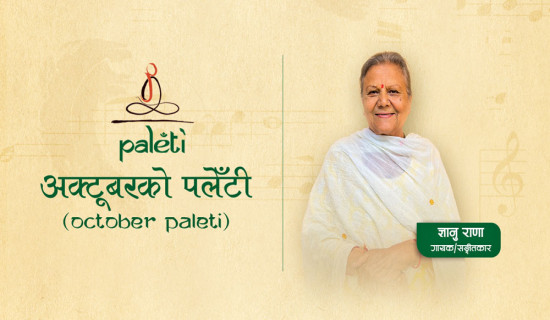
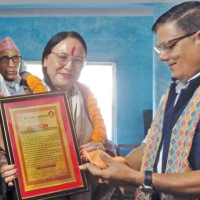
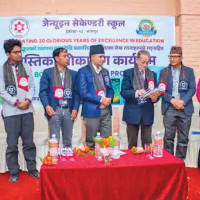
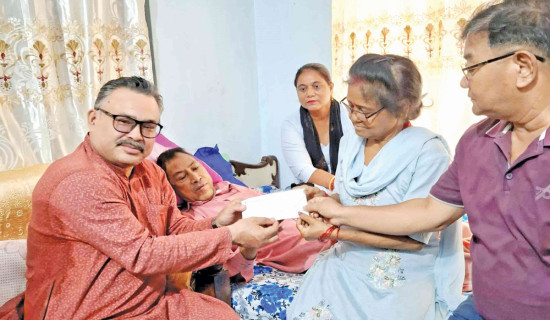
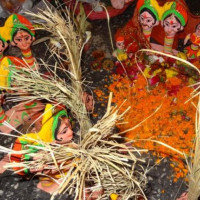
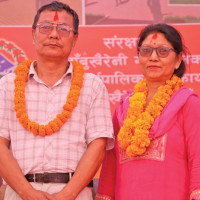
-original-thumb.jpg)







